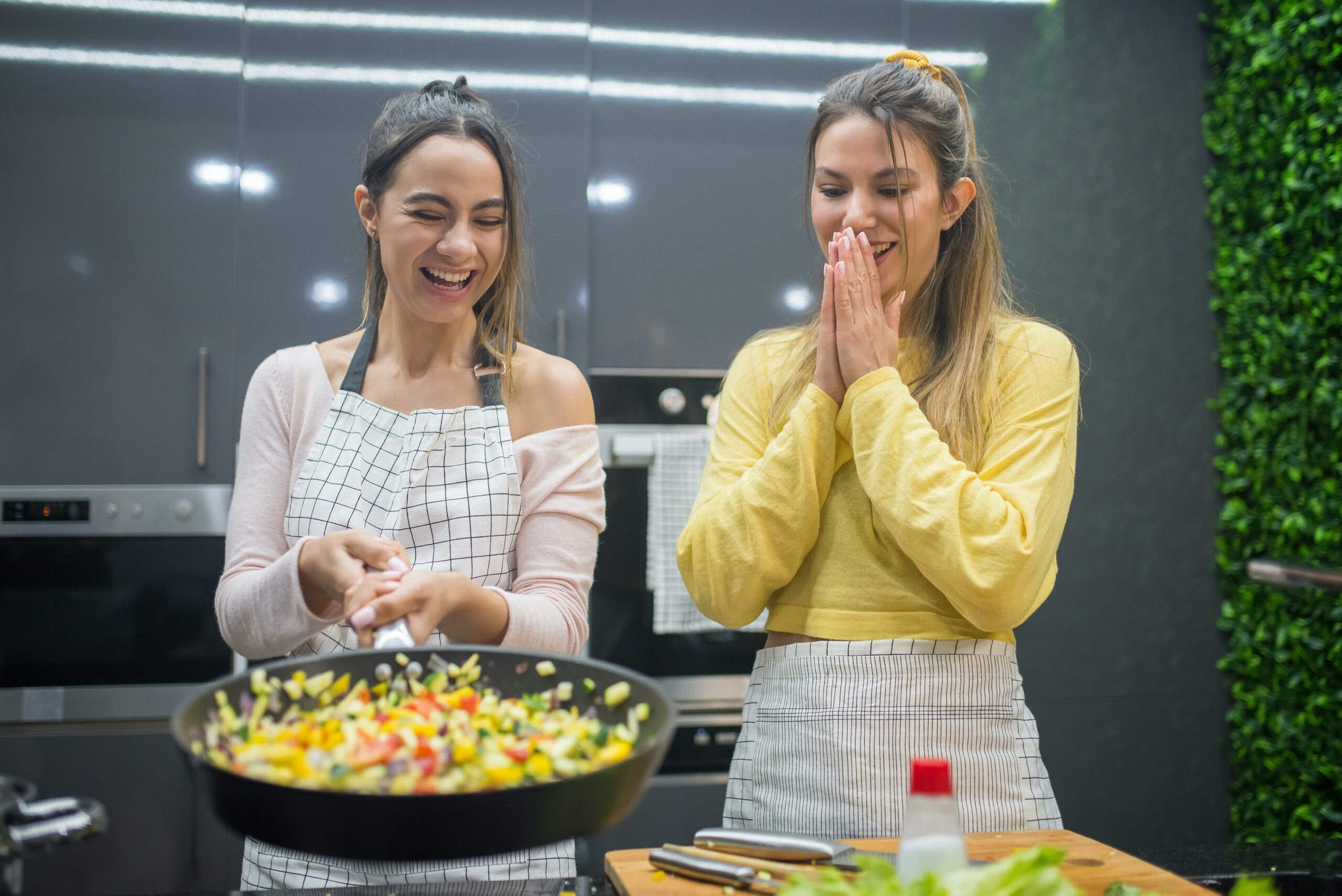What we're covering..
Introduction 👋
Without question, teaching young people about fire safety is extremely important.
Studies have shown that in England in the year ending March 2022, there were 27,166 home/dwelling fires – a one percent increase from the previous year.
However, if you’re teaching, it’s difficult to find the time to do all the research, so you can teach it!
Save yourself time by using our free interactive fire safety quiz to teach your learners about fire safety!
The quiz:
- Starts with the basics 🪜
- Includes interesting fire safety facts and statistics 🧠
- Explains fire safety in a simple and entertaining way 🤹♀️
This quiz can be used to:
- check learners’ understanding of fire safety 🧠
- introduce the topic of fire safety 👋
- check learners’ familiarity with kitchen fire safety and fire safety vocabulary ✅
- facilitate group discussions about fire safety 💬
Disclaimer: This website provides information for guidance and educational purposes only. The Grown-Up School does not provide specialist fire safety advice, and bases resources on government guidance provided at the time of writing. You can seek independent fire safety advice from a suitably qualified and regulated professional advisor. Check out our disclaimer policy for more information.
Lesson Objectives 🏆
By the end of this lesson, learners will:
- Understand the importance of having functioning smoke alarms in the home, and ways in which some kitchen fires are commonly caused
- Be aware of different measures that can be taken to prevent kitchen fires at home
- Gain a basic understanding of how to respond to kitchen fires
Learner Record Notes✍️
Once you’ve completed this quiz, you can add these notes to your records for your learners:
Today we completed an interactive quiz about kitchen fire safety, where learners assessed their own understanding of fire safety at home.
This activity supported the development of the following skills:
- Numeracy – learners developed their understanding of application of number, with quiz questions featuring fractions and numbers.
- Literacy – learners read quiz questions and answers, and were introduced to new vocabulary.
- Problem solving – learners used problem solving skills to decide between different quiz answers.
- Decision making – learners made decisions under time pressure, considering feedback from other participants.
- Working with others – learners chose answers in teams, negotiating with other participants.
- Communication skills – learners participated in group discussions about fire safety.
- Digital literacy – learners completed the quiz online, using web links and participation codes. Where connection issues were experienced, learners worked to resolve them and connect to the quiz online.
- Improving own learning and performance – learners developed their confidence assessing their own understanding of a topic.
Kahoot Quiz 📱
Get the whole group playing, by completing these fire safety quizzes as an interactive Kahoot quiz!
Just click the links below to get started.
Fire safety at home – preventing kitchen fires (UK) 🔥
Printable Quiz 🖨️
If Kahoot! isn’t your thing, here’s a printable version of the quiz!
Questions 🤔
Q1: How many home fires are caused by cooking accidents? 👨🍳
- One quarter of all home fires
- Half of all home fires
- One third of all home fires
- Every single fire
Q2: How much more likely are you to die in a fire, if you don’t have a working smoke alarm in your home? 🔔
- Two times
- Three times
- Six times
- Eight times
Q3: Which one of these types of clothing is especially likely to catch fire? 🔥
- Tight clothing
- Loose clothing
- Yellow clothing
- Red clothing
Q4: Which of these items should you especially keep away from the hob, to avoid causing a fire? 🍳
- Knives
- Boiling pots
- Tea towels and cloths
- A metal colander
Q5: If you’re under the influence of alcohol, what should you do? 🍹
- Avoid cooking
- Make a fry up dinner
- Use the microwave
- Stop drinking and start cooking
Q6: If you’re caring for a child and cooking at the same time, what should you avoid doing? 👶
- Feeding the child
- Giving the child toys
- Listening to the child
- Leaving the child alone in the kitchen
Q7: Which of these is the safest way to light a gas cooker? 🧨
- A lighter
- Matches
- Candles
- Spark devices
Q8: Once you’ve finished cooking, what should you do? 🍛
- Eat straight away
- Put the TV on
- Turn the oven on
- Double check the cooker is off
Q9: Which of these should you avoid putting in the microwave? 💥
- A ceramic plate
- A metal spoon
- Parchment paper
- A glass mug
Q10: If you’re using electrical appliances in the kitchen, what should you keep them away from? 🔌
- The kitchen
- Sand
- Water
- Air
Q11: Where should you keep matches and saucepan handles? 🍳
- Out of reach from children
- On the floor
- Outside
- Low down in the kitchen
Q12: Why should you make sure that saucepan handles don’t stick out? (Most important reason!) 🍲
- They look untidy
- So they work properly
- It stops them from being cold
- So they don’t get knocked off the cooker
Q13: If you need to leave the kitchen whilst cooking, what should you do? 🚪
- Call your friend for a chat
- Take the pans off the heat
- Never go back
- Do some cleaning instead
Q14: Where’s the best place to put your toaster? 🍞
- On the countertop
- Next to curtains
- By the kitchen roll
- On top of cloths
Q15: What’s the name of the slide out tray to help you keep your toaster clean, and reduce the risk of crumbs catching fire? 🍞
- Crumb counter
- Crumb buster
- Crumb catcher
- Crumb shelf
Q16: Why should you clean fat and grease off your ovens, hobs, and grills? 🧽
- It could catch fire
- It smells bad
- You could get told off by your teacher if you don’t
- It’ll make your food taste strange
Q17: Why should you take care when deep fat frying and cooking with hot oil? 🍳
- The oil can get set on fire easily
- It’s greasy
- It creates a lot of smoke
- Oil is wet
Q18: If hot oil starts to smoke that means it’s too hot. What should you do? 🌫️
- Turn off the heat
- Turn down the heat
- Turn up the heat
- Do nothing
Q19: Why should you make sure that food is dry before putting it in hot oil? 🥔
- It’ll taste better
- The food will become more crispy
- Water can make hot oil splash
- Wet food will burn
Q20: Why is it a good idea to use a deep fat fryer that is controlled by a thermostat? 🌡️
- They make food less greasy
- They only burn food a little bit
- They set on fire more easily
- They can’t overheat
Q21: What should you do if a pan catches fire? 🔥
- Tackle the fire yourself
- Get your friend to tackle the fire
- Don’t tackle the fire yourself
- Add oil to the fire
Q22: Why shouldn’t you throw water over a frying pan that’s on fire? 💦
- It creates an explosion of hot oil
- It’s bad for the environment
- It’ll make the oil watery
- It’ll ruin the food
Q23: If a frying pan catches fire but it’s not too out of control, what can you do to help?🥵
- Carry on cooking
- Turn off the heat
- Throw water over it
- Ignore it
Q24: What should you do if there is a fire? 🔥
- Get your valuables and run
- Stay in, get a snack
- Get out, stay out, call 999
- Get out, stay out, order a pizza
Answers ✅
- Q1: Answer 2 – Half of all home fires are caused by cooking accidents.
- Q2: Answer 4 – You are eight times more likely to die in a fire if you don’t have a working smoke alarm in your home.
- Q3: Answer 2 – Loose clothing is especially likely to catch fire.
- Q4: Answer 3 – You should keep tea towels and cloths away from the hob, to avoid causing a fire.
- Q5: Answer 1 – If you’re under the influence of alcohol you should avoid cooking.
- Q6: Answer 4 – If you’re caring for a child and cooking at the same time you should avoid leaving the child alone in the kitchen.
- Q7: Answer 4 – The safest way to light a gas cooker is with a spark device.
- Q8: Answer 4 – Once you’ve finished cooking you should double check the cooker is off.
- Q9: Answer 2 – You should avoid putting metal in the microwave.
- Q10: Answer 3 – You should keep electrical appliances away from water.
- Q11: Answer 1 – You should keep matches and saucepan handles out of reach from children.
- Q12: Answer 4 – You should make sure that saucepan handles don’t stick out so they don’t get knocked off the cooker.
- Q13: Answer 2 – If you need to leave the kitchen whilst cooking you should take the pans off the heat.
- Q14: Answer 2 – The best place to put your toaster is on the countertop (and not next to curtains, kitchen roll, or cloths!)
- Q15: Answer 3 – Crumb catchers help to keep your toaster clean, and reduce the risk of crumbs catching fire.
- Q16: Answer 1 – You should clean fat and grease off your ovens, hobs, and grills to avoid it catching fire.
- Q17: Answer 1 – You should take care when deep fat frying and cooking with hot oil because the oil can get set on fire easily.
- Q18: Answer 1 – If hot oil starts to smoke you should turn off the heat.
- Q19: Answer 3 – You should make sure that food is dry before putting it in hot oil because water can make hot oil splash.
- Q20: Answer 4 – It is a good idea to use a deep fat fryer that is controlled by a thermostat because they can’t overheat.
- Q21: Answer – If a pan catches fire, don’t tackle the fire yourself. Get out, stay out, and call 999.
- Q22: Answer 1 – You shouldn’t throw water over a frying pan that’s on fire because it creates an explosion of hot oil.
- Q23: Answer 2 – If a pan catches fire but it’s not too out of control, you can turn off the heat to help prevent the fire from getting worse.
- Q24: Answer 3 – If there is a fire you should get out, stay out, and call 999.
Similar quizzes to “Fire safety at home quiz: preventing kitchen fires (UK) 👩🍳” ⬇️
Fire safety at home quiz: understanding smoke alarms (UK)🔔
4 money myths you shouldn’t believe 🦄
Why you should save for retirement when you’re really young 🧓
8 reasons to start saving money now 🐷
Is borrowing money a bad thing? 🤷♀️
8 bad money habits you should break💰
🎓
Follow us!
for free daily Grown-Up lessons 🙌🎉



